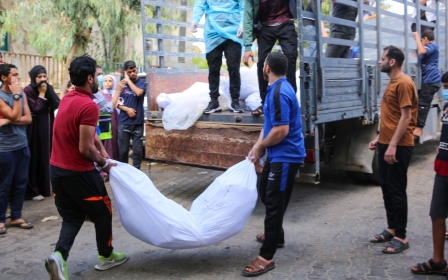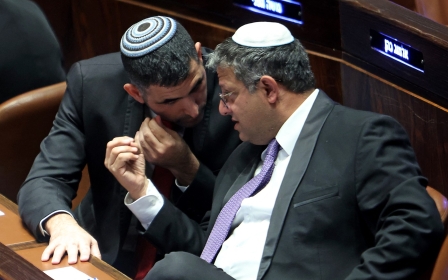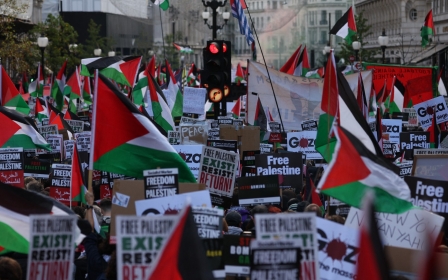Israel-Palestine war: Are differences in opinion delaying Israel's ground invasion of Gaza?
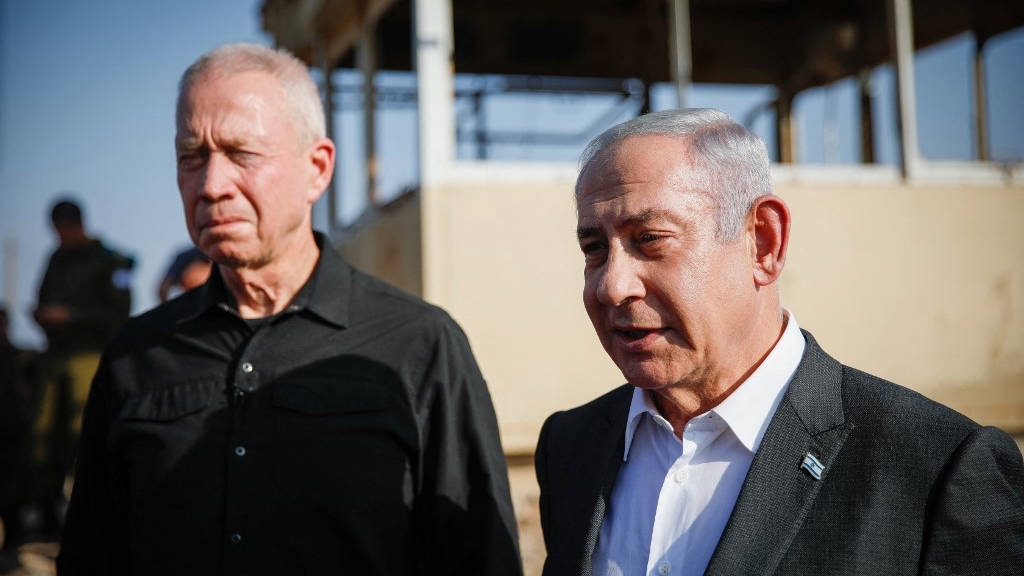
As Israel prepares to launch its ground invasion of Gaza, cracks are beginning to emerge over what should be done next, as the country's military planners weigh up options.
As the war enters its tenth day, Israel has vowed for days that a ground invasion of Gaza is imminent but differences of opinion within the Israeli security apparatus are holding up the planned offensive, according to local media including Israel's Ynet News.
A report by the outlet said one of the main concerns delaying the invasion is the potential reaction by the Lebanese Hezbollah movement. Israel’s security forces believe that “whenever Israeli operations in Gaza escalate, so does Hezbollah’s operations”.
Another factor Israeli military planners have to take into account is what to do if Hezbollah's backer Iran gets involved and what Israel's response would be in that circumstance.
Iranian Foreign Minister Hossein Amir-Abdollahian has repeatedly warned Israel that if it does not end its aggression against Gaza, it will intervene.
New MEE newsletter: Jerusalem Dispatch
Sign up to get the latest insights and analysis on Israel-Palestine, alongside Turkey Unpacked and other MEE newsletters
"If the Zionist aggressions do not stop, the hands of all parties in the region are on the trigger," Amir-Abdollahian said.
Tensions are already heightened on Israel's northern border with Lebanon, as Palestinian armed groups and Hezbollah exchange fire with the Israeli army.
While the US has promised its total support to Israel, the Biden administration has also raised concerns about Israel’s next steps.
Follow Middle East Eye's live coverage for the latest on the Israel-Palestine war
According to US media reports, people familiar with the Biden administration’s position say that the White House fears that Israel does not have a plan for what comes next for Gaza after any invasion. US officials are therefore pressing Israel to think beyond the immediate goal of eradicating Hamas.
The sources, who wished not to be named, state that Biden’s team fears that a ground invasion, with no clear endpoint, could push Israel into a deep crisis that its allies in the US and other western states would struggle to contain.
Within Israel, the differences on what to do go all the way up to the prime minister's office, with Defence Minister Yoav Gallant and Prime Minister Benjamin Netanyahu clashing over the conduct of the war.
A report by Israel's Channel 13 said that Netanyahu is opposed to the idea of expanding the war to include other regions, whereas Gallant supports the idea.
The disagreements are not limited to the conduct of the planned invasion.
Senior officials in the prime minister’s office forbade other government officials from working with a defence ministry task force to repair infrastructure near Gaza because it was headed by an opponent of the government’s judicial overhaul.
According to Haaretz, the task force is headed by Major General Roni Numa, who took part in several anti-judicial overhaul demonstrations.
Anger over captives
There is also frustration brewing in Israel over captives held in Gaza, and Netanyahu has been subject to sharp criticism for his handling of the situation.
This week, protesters gathered in front of the Ministry of Defence and called for Netanyahu to resign, as families of captives said they feel abandoned and had been provided with little information.
Some Israelis have accused Netanyahu and his ministers of caring more about their political survival than prioritising the safety of Israeli citizens.
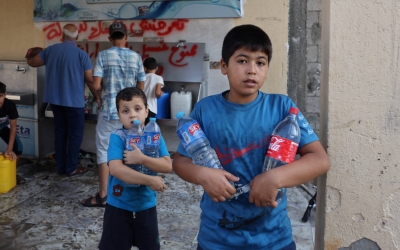
Israel has appointed Gal Hirsch, a retired general, as coordinator for the return of captives and those missing.
The fate of Israeli captives held in Gaza remains unknown and Hamas has claimed that Israeli air strikes on the region have resulted in the deaths of some hostages. It says Israeli fire has killed at least 13 captives in Gaza.
Israel’s ambassador to the UN, Gilad Erdan, has said that concern for the hostages is “not going to stop (Israel), prevent us from doing what we need to do in order to secure the future of Israel”.
Yossi Shelley, the director general of the Prime Minister’s Office, similarly said that “the hostages are a fact. And the attacks are a fact. That’s the decision,” implying that bombing Gaza would go ahead, irrespective of whether the assault results in the killing of hostages.
Finance Minister Bezalel Smotrich advocated at a cabinet meeting for Israel to “strike Hamas brutally, and not take the issue of the captives into account too much,” a sentiment which has split opinion amongst Israelis.
Tzipi Navon, a close adviser and office manager for Netanyahu's wife, Sara, came to the defence of the prime minister in the face of growing discontent over his handling of the ongoing war.
Navon posted a number of other inflammatory posts, including one in which she said left-wing Israelis needed to have their Facebook profiles reported en masse.
"We have not finished burying our dead yet, we are only at the beginning of a war, and the traitors from the left continue to incite," she wrote on her Facebook profile, which is currently locked.
"Let's close the page for them! Report en masse to Facebook! This time we fight back and protect our prime minister!"
This article is available in French on Middle East Eye French edition.
Middle East Eye delivers independent and unrivalled coverage and analysis of the Middle East, North Africa and beyond. To learn more about republishing this content and the associated fees, please fill out this form. More about MEE can be found here.


